Discover the Women of the Hall
These are the Inductees of the National Women’s Hall of Fame. Select any of the women to discover their stories and learn how they have influenced other women and this country.
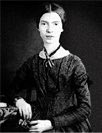 Emily Dickinson
Arts
1830
Massachusetts
1973
Emily Dickinson
Arts
1830
Massachusetts
1973

Emily Dickinson
One of the world’s greatest poets. A New England woman who spent much of her life in one small community, her world vision and innovative style has had a lasting impact on literature.
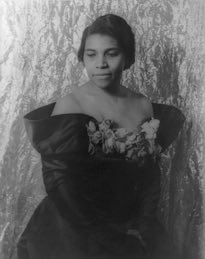 Marian Anderson
Arts
1897
Pennsylvania
1973
Marian Anderson
Arts
1897
Pennsylvania
1973

Marian Anderson
First African American singer to perform with the Metropolitan Opera. An international star, Anderson was a brilliant musician whose talents helped shatter the color barrier for other African American performers.
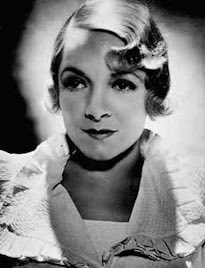 Helen Hayes
Arts
1900
1973
Helen Hayes
Arts
1900
1973

Helen Hayes
A major actress in all entertainment areas, from live theater to films and radio. In 1955, New York’s Fulton Theatre was renamed in her honor to commemorate a distinguished 50-year career.
 Pearl S. Buck
Arts
1892
West Virginia
1973
Pearl S. Buck
Arts
1892
West Virginia
1973

Pearl S. Buck
Novelist whose writing evoked two different cultures, American and Asian. Buck won the Pulitzer Prize for The Good Earth and was later the first American woman awarded the Nobel Prize in Literature for her body of work.
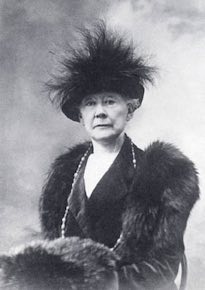 Mary Cassatt
Arts
1844
Pennsylvania
1973
Mary Cassatt
Arts
1844
Pennsylvania
1973

Mary Cassatt
American impressionist painter who captured the soul of family life, women, children, interiors and gardens. A friend and student of the great Impressionists of Paris, Cassatt powerfully influenced American art.
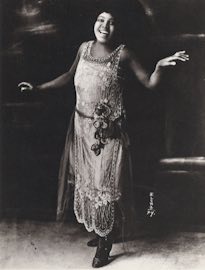 Bessie Smith
Arts
c.1894
Tennessee
1984
Bessie Smith
Arts
c.1894
Tennessee
1984

Bessie Smith
One the nation’s great blues singers, Smith earned stardom from her first record 1923’s “Down Hearted Blues,” which sold two million records. The “Empress of the Blues,” made more than 160 recordings with many of the country’s finest jazz musicians.
 Harriet Beecher Stowe
Arts
1811
Connecticut
1986
Harriet Beecher Stowe
Arts
1811
Connecticut
1986

Harriet Beecher Stowe
Author and daughter of a minister, Stowe became one of the first women to earn a living by writing, publishing the best-seller Uncle Tom’s Cabin in 1852. Although she wrote much more, her best-seller was often acclaimed as a major factor in the drive to abolish slavery.
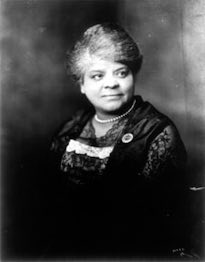 Ida B. Wells-Barnett
Arts, Humanities
1862
Mississippi
1988
Ida B. Wells-Barnett
Arts, Humanities
1862
Mississippi
1988

Ida B. Wells-Barnett
African American leader, anti-lynching crusader, journalist, lecturer and community organizer who fought social injustice all her life. Wells-Barnett sued a railroad over segregated seating, criticized segregated education and became editor and part owner of a newspaper. The horrors of lynching inspired her to lead a major effort to abolish the atrocity.
 Gwendolyn Brooks
Arts
1917
Kansas
1988
Gwendolyn Brooks
Arts
1917
Kansas
1988

Gwendolyn Brooks
Poet and novelist. Brooks was the first African American woman to win the Pulitzer Prize (Annie Allen, 1949). She was very active in the Black arts movement.
 Willa Cather
Arts
1873
Virginia
1988
Willa Cather
Arts
1873
Virginia
1988

Willa Cather
Newspaperwoman and editor who became an outstanding novelist with the publication of O Pioneers in 1913. Cather went on to write other great novels and won the Pulitzer Prize in 1922. Her well-known works include My Antonia and Death Comes for the Archbishop.
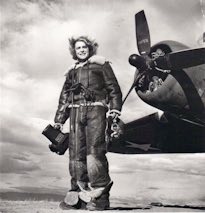 Margaret Bourke-White
Arts
1904
New York
1990
Margaret Bourke-White
Arts
1904
New York
1990

Margaret Bourke-White
Trailblazing photographer, recording the Depression, London in the Blitz, Stalin and the Kremlin, World War II and more as the paramount photographer for Life, Fortune and other publications.
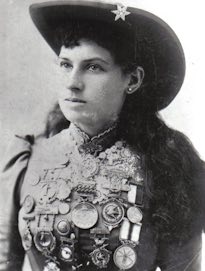 Annie Oakley
Arts
1860
Ohio
1993
Annie Oakley
Arts
1860
Ohio
1993

Annie Oakley
Markswoman, was probably the nation’s finest. A performer for many years with Buffalo Bill’s Wild West Show, Oakley was a staunch supporter of other women’s opportunities and raised funds to send needy women to college and nursing school.
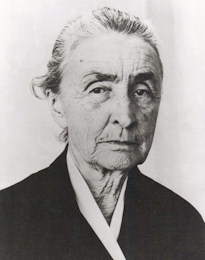 Georgia O'Keeffe
Arts
1887
Wisconsin
1993
Georgia O'Keeffe
Arts
1887
Wisconsin
1993

Georgia O'Keeffe
Artist and perhaps the best-known American woman painter. An American original in both her lifestyle and painting, O’Keeffe produced works of high energy and vision throughout her long life.
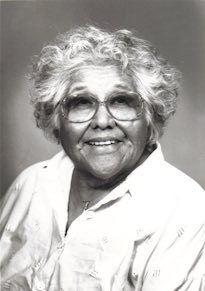 Katherine Siva Saubel
Arts, Education, Humanities
1920
California
1993
Katherine Siva Saubel
Arts, Education, Humanities
1920
California
1993

Katherine Siva Saubel
Founder of the Malki Museum at the Morongo Reservation in California. Born on a reservation in great poverty, Saubel became determined to preserve her tribe’s culture and language, despite overwhelming odds. A learned ethno anthropologist, Saubel was a founder of this first museum run by Native Americans.
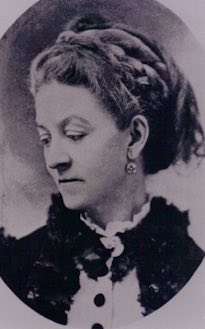 Jane Cunningham Croly
Arts
1829
England
1994
Jane Cunningham Croly
Arts
1829
England
1994

Jane Cunningham Croly
Journalist and driving force behind the American Club women’s movement that inspired thousands of women into a wide range of social reform activities. Probably the nation’s first woman syndicated columnist, Croly was also the founder of the General Federation of Women’s Clubs.
 Charlotte Perkins Gilman
Arts
1860
Connecticut
1994
Charlotte Perkins Gilman
Arts
1860
Connecticut
1994

Charlotte Perkins Gilman
Philosopher, writer, educator and activist who demanded equal treatment for women as the best means to advance society’s progress. Her landmark Women and Economics (1898) argued that until women gained economic independence, real autonomy and equity could not be achieved.
 Zora Neale Hurston
Arts
1891
Alabama
1994
Zora Neale Hurston
Arts
1891
Alabama
1994

Zora Neale Hurston
Novelist, anthropologist and folklorist who contributed greatly to the preservation of African American folk traditions and to American literature. Hurston’s best known works include Their Eyes Were Watching God and her autobiography, Dust Tracks on the Road.
 Oprah Winfrey
Arts, Business, Philanthropy
1954
Mississippi
1994
Oprah Winfrey
Arts, Business, Philanthropy
1954
Mississippi
1994

Oprah Winfrey
The first Black woman to own her own television production company and who became television’s highest-paid entertainer. She is an advocate for ending child abuse, and she contributes generously to colleges and universities.
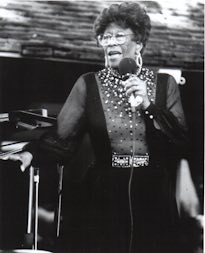 Ella Fitzgerald
Arts
1917
Virginia
1995
Ella Fitzgerald
Arts
1917
Virginia
1995

Ella Fitzgerald
World-renowned jazz singer and the first pop musician awarded the Lincoln Center Medallion. At 15, she entered a talent contest to dance. Her knees shook so much during the contest, she chose to sing instead and was discovered by a Chick Webb band member.
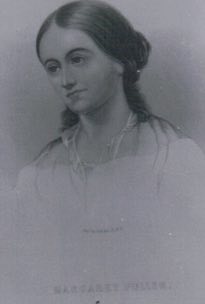 Margaret Fuller
Arts
1810
Massachusetts
1995
Margaret Fuller
Arts
1810
Massachusetts
1995

Margaret Fuller
Literary critic, editor, teacher and author. Fuller’s early writings inspired leaders of women’s rights. She was editor of the The Dial, a Transcendental journal, and she advocated liberation for all humanity.
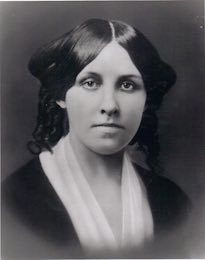 Louisa May Alcott
Arts
1832
Pennsylvania
1996
Louisa May Alcott
Arts
1832
Pennsylvania
1996

Louisa May Alcott
Author who produced the first literature for the mass market of juvenile girls in the 19th century. Her best-known work, Little Women, has appeared continuously in print since its first publication in 1868-69.
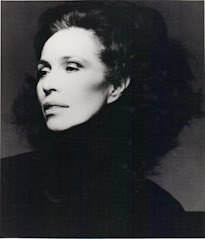 Maria Tallchief
Arts
1925
Oklahoma
1996
Maria Tallchief
Arts
1925
Oklahoma
1996

Maria Tallchief
Prima ballerina with the New York City Ballet and artistic director for the Lyric Opera Ballet in Chicago. Tallchief created a distinctive style and interpretation which continues to influence contemporary ballet. She used her international acclaim to bring about greater understanding and appreciation of Native Americans.
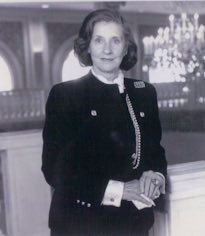 Wilhelmina Cole Holladay
Arts, Business, Philanthropy
1922
1996
Wilhelmina Cole Holladay
Arts, Business, Philanthropy
1922
1996

Wilhelmina Cole Holladay
Founder of the National Museum of Women in the Arts in Washington, D.C., which brings national and international attention to the vast achievements of women in art.
 Anne Morrow Lindbergh
Arts, Science
1906
1996
Anne Morrow Lindbergh
Arts, Science
1906
1996

Anne Morrow Lindbergh
Author of numerous elegant essays, journals and other books. Lindbergh also excelled as co-pilot and navigator with her husband Charles on their historic flights to promote the development of international aviation.
